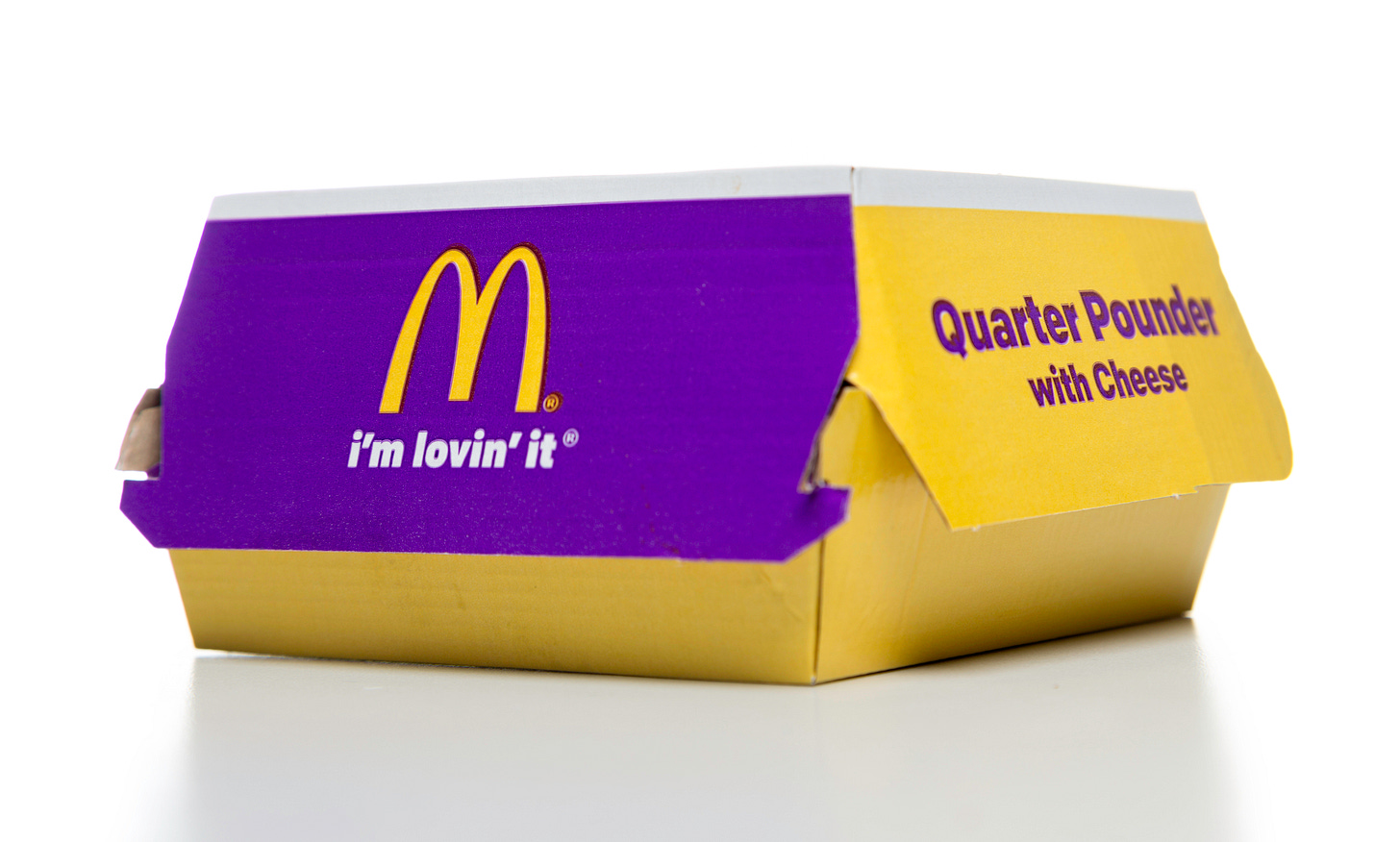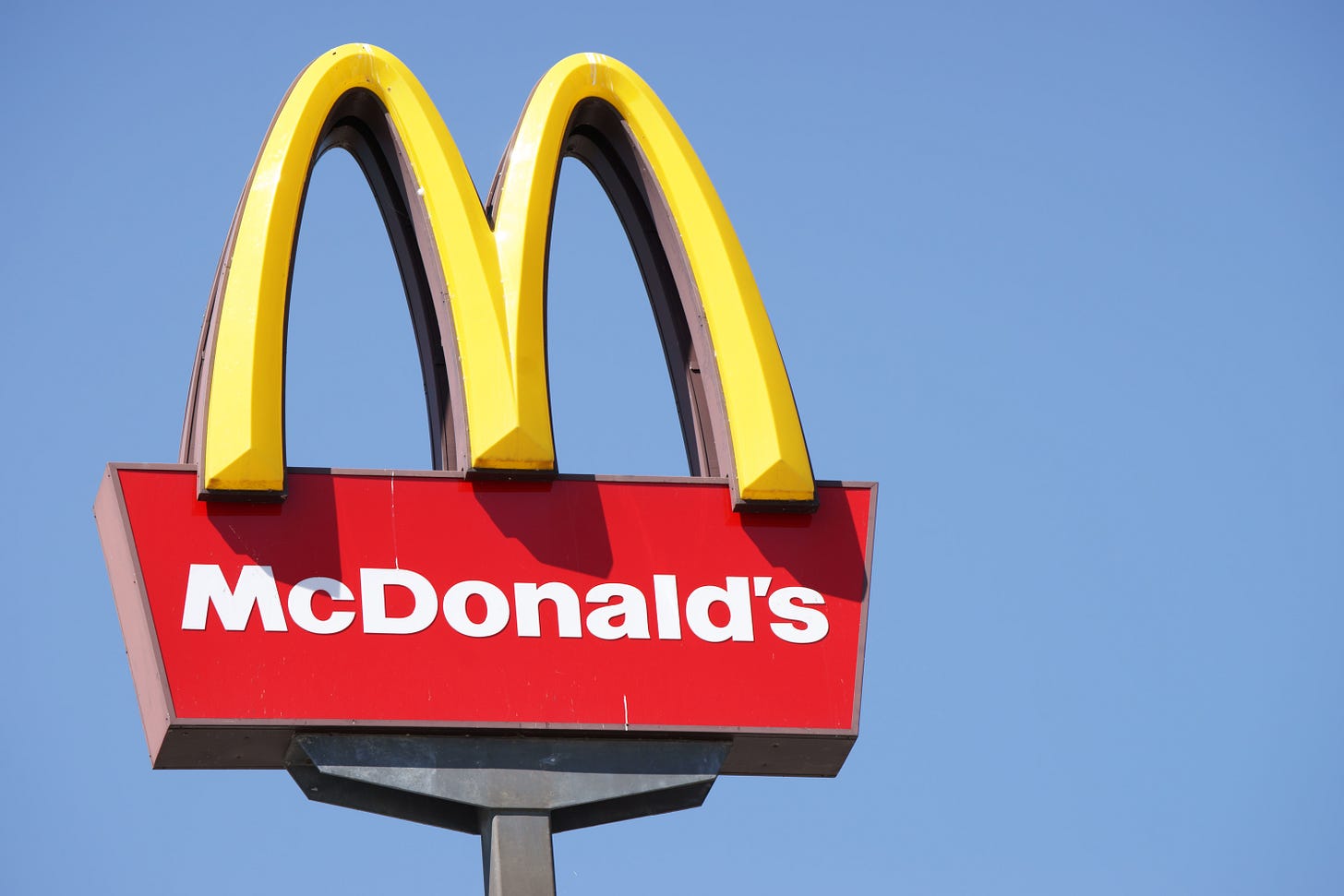Not Lovin' It
Fast food, mixed service: How McDonald's navigated a menu of crises in 2024
This year has been an exceptionally challenging one for McDonald's crisis team. From a serious food safety incident to international boycotts and a side of Trump on the menu, the fast-food giant faced a series of reputation-threatening events that tested their response capabilities worldwide.
In October, a serious E. coli outbreak was linked to their Quarter Pounders – known as Royal Cheese here in Belgium. The numbers were sobering: 104 people fell ill across 13 states, with 34 in hospital, and tragically, one person lost their life. McDonald's acted swiftly, removing Quarter Pounders from affected locations while helping health authorities trace the contamination to a U.S. supplier of onions.
While still managing the fallout from contaminated burgers, McDonald's faced an even thornier challenge abroad. Earlier this year, when their Israeli franchise provided free meals to Israeli military forces around the start of the Israel-Gaza war, it sparked widespread boycotts across Muslim-majority nations including Kuwait, Malaysia, and Pakistan. The impact was immediate and severe, with regional sales in the Middle East, China, and India virtually stalling.
If food safety and geopolitics weren't enough to test McDonald's crisis playbook, American politics brought its own order to the table. President-Elect Donald Trump's October visit to a Pennsylvania McDonald's created another delicate situation. His impromptu shift at the fry station and drive-thru – agreed to by McDonald’s – pushed them to carefully maintain political neutrality.
Better at politics than patties
Three crises, three distinct responses – each revealing a different side of the McDonald's crisis management menu. While the company clearly had crisis management protocols in place, their execution varied significantly across different types of challenges.
The E. coli outbreak response showed swift operational decisions but hesitant communication. While Quarter Pounders disappeared from menus immediately, affected franchises remained open during the investigation. McDonald's president Joe Erlinger's corporate-speak and lack of empathy undermined their practical response. Public sentiment plummeted, with negative searches peaking at 15% of all McDonald's searches. Their response? A McNuggets promotion campaign - an odd choice while trust in their beef products wavered.
The Israel-Gaza boycott situation showed the opposite pattern. Initially keeping a low profile and blaming misinformation for the slump in sales, they later made a bold move – acquiring all 225 Israeli locations. Their communication evolved from defensive to decisive, but only after significant market impact.
Their most consistent handling came with the political challenge: maintaining clear neutrality from the start. Their "open doors" messaging remained steady, treating Trump's visit with a measured tone.
Wobbling golden arches
For a company that built its empire on operational consistency, these varied crisis responses show a paradox: McDonald's seems most confident handling political challenges – exemplified by their clear "We are not red or blue—we are golden" stance – but less sure-footed with core business issues like food safety and international market management. When operational challenges hit, their response swings between decisive action and hesitant communication, or vice versa.
In 2024, McDonald's faced a stress test of its crisis management capabilities, revealing how differently a global brand can perform across various challenges. While the company's operational and financial responses proved robust - from rapid product removal to a $100 million recovery plan - their consumer communication faltered when it mattered most. Their experiences underscore a modern reality for global food chains: when a franchise's actions in Tel Aviv ripple through to Kuwait, Malaysia and Pakistan, consistency in crisis response becomes both more crucial and more complex. Even the most experienced global brands can stumble when serving different messages from the same corporate kitchen.






